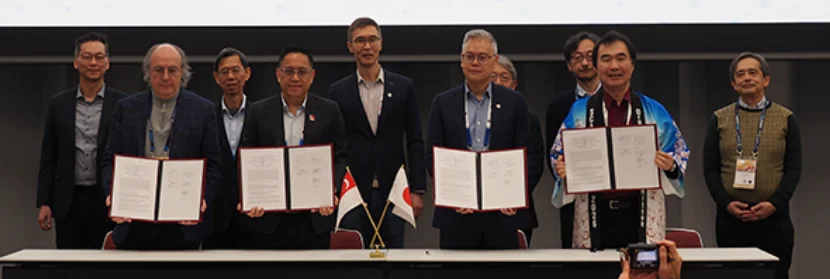Insider Brief
- A new survey commissioned by the EU’s Quantum Flagship found that 78% of adults in France and Germany are aware of quantum technologies, with most expressing optimism about their potential to address major societal challenges.
- Respondents showed the greatest excitement for quantum’s role in healthcare (53%), followed by potential impacts on energy (47%), cybersecurity (44%), and climate change (41%).
- While awareness is high, only 29% of those surveyed said they understand what quantum technology is, highlighting a gap between interest and technical understanding.
A survey suggests that most adults in France and Germany not only show a growing awareness of quantum technology, but also express increasing confidence that the technology could help solve some of society’s biggest challenges, from healthcare and climate change to energy and cybersecurity.
Released earlier this week on World Quantum Day (April 14, 2025), the survey commissioned by the EU’s Quantum Flagship and conducted by YouGov provides the first detailed snapshot of public attitudes toward quantum science in Europe. According to the findings, 78% of adults in the two countries say they are aware of quantum technologies, and more than half are optimistic about their potential benefits.
While quantum science may still sound like a topic reserved for physicists and engineers, the field underpins many technologies people already use daily — including lasers, semiconductors, MRI scanners, and GPS, according to a news release on the survey. What’s emerging now is the so-called second quantum revolution, in which scientists are beginning to control particles like atoms, electrons and photons to build entirely new technologies: ultra-secure communications networks, vastly more powerful computers, and ultra-precise sensors.

Excitement About Quantum’s Potential

The survey data reflects growing public enthusiasm for these possibilities. In total, 53% of respondents said they were excited about quantum’s potential to improve healthcare, while 47% cited energy, 44% pointed to cybersecurity, and 41% to climate change.
That’s a hopeful sign, according to Yasser Omar, President of the Portuguese Quantum Institute and a representative of the Quantum Flagship.
“We need the public worldwide to understand how important quantum technology is for our future,” said Omar, in the release. “People are already intrigued by the potential applications, from healthcare breakthroughs to contributing to tackling climate change.”
Although awareness is high, detailed understanding still lags behind. Just 29% of respondents said they had a good understanding of what quantum science and technology actually is, while nearly half — 49% — had heard of it but didn’t know what it meant. Only 4% believed quantum would have a negative impact on their country in the next five years, compared to 47% who believed the impact would be positive or very positive.
Specific Applications
Among specific applications, the poll showed that one in four adults believed quantum technologies could help reduce greenhouse gas emissions. Similarly, 29% recognized its potential in drug discovery and weather forecasting — use cases already being pursued in labs and startups.
Quantum photonics, for example, is being applied to enhance medical imaging and diagnostics, offering faster and cleaner alternatives to traditional methods. Quantum chemistry is enabling simulations that support the discovery of vaccines and medicines. Meanwhile, quantum sensors and processors are helping scientists build more accurate long-term climate models and next-generation systems for environmental monitoring.
International Year of Quantum Science and Technology
The survey was timed to coincide with the United Nations’ declaration of 2025 as the International Year of Quantum Science and Technology — a global call to invest in research and engage the public in the future of quantum innovation.
Europe has positioned itself as a leader in the field. The EU’s Quantum Flagship, launched in 2018, is backing quantum research and development with €1 billion in funding over a ten-year period, according to the release. The program supports advances in quantum computing, communication, sensing, and simulation, with participation from universities, startups, and large industry players.
This effort is now being reinforced by other EU initiatives, such as the European Chips Act and the EuroHPC Joint Undertaking. In September 2024, a €65 million call was launched under the Chips Act to help industrialize quantum chips and accelerate their deployment in real-world settings — part of a broader €200 million investment over three years.
The new data shows that public sentiment is aligning with these investments. Awareness was slightly higher in Germany (81%) than in France (73%), but both countries expressed similarly strong support for quantum’s future role in society.
The online survey polled 3,093 adults — 1,037 in France and 2,056 in Germany — between April 4 and 8, 2025. Conducted by YouGov, the results are nationally representative for each country and are expected to help guide future public engagement efforts around quantum technologies in Europe and beyond.














